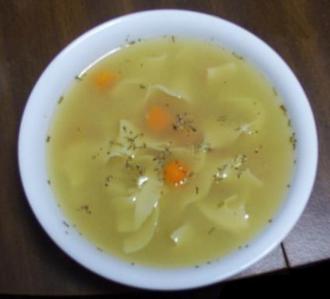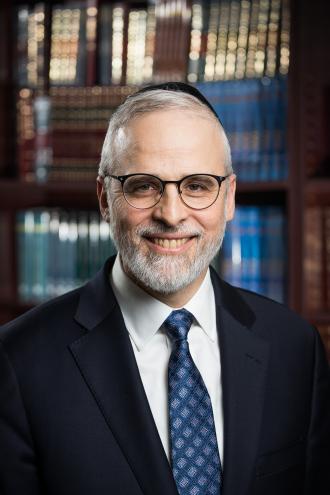This article is written in honor of the forthcoming marriage of the author’s daughter, Mirelle, to R’ Rephael Giller which will b’Ezras hashem take place tonight.
The article is a translation of a heretofore unpublished Sefer of Rav Elyashiv zatzal’s rulings on nissuin. The original sefer will be published shortly in lashon haKoedesh by Rav Elyashiv’s grandsons. The Elyashiv family graciously granted the author permission to translate the sefer and to give it out at the wedding.
THE BRACHOS
OBLIGATION OF THOSE GATHERED
1. The obligation to recite the Sheva Brachos is an obligation upon those gathered, who were obligated in the brachos of a wedding. Therefore, one should not leave a meal without benching with a Mezuman and without hearing Sheva Brachos.
GROOM AND BRIDE HEARING THE BLESSINGS
2. It is proper that the bride and groom hear the Sheva Brachos. Therefore the bride should come to the place where she can hear the person reciting the blessing. However, the essential obligation is on those who have gathered there, as discussed earlier.
OBLIGATION OF WOMEN
3. Women are also obligated in hearing Sheva brachos.
WHAT TO DO WHEN ONE MUST LEAVE
4. If someone knows that he will have to leave before the end of the meal, he should have in mind before he begins the meal that his intent is not to join with them. This works in a shaas hadchak situation (i.e. when necessary), whether for Zimun or for Sheva brachos.
SHEVA BRACHOS IN THE MIDDLE OF BENTCHING
5. Someone who in the middle of Sheva Brachos finds himself in the middle of bentching must not interrupt his blessing by stopping in order to hear the Sheva Brachos.
THROUGH A MICROPHONE
6. He must be careful to ensure that ten people hear the blessings from the person reciting them. Therefore, if there is a microphone, the one reciting the blessing must do so aloud so that the ten people hear it from him and not the microphone.
TO BLESS ALOUD
7. Similarly, one must be careful not to honor someone with the blessings of Sheva Brachos to someone with a low voice who cannot be heard by ten people, such as an elderly person or a sick person.
WHEN THE PERSON BLESSING CANNOT BE HEARD
8. If they must honor such a person for various reasons, such as to give him honor and the like, they should ask ten people to come very close and they should strain to hear the blessing from his mouth in order to hear Birchas Chasanim in front of ten and so that it will not be a bracha levatala.
POST FACTO WHEN TEN DID NOT HEAR
9. However, if, post facto, the person recited the blessing in a very low voice and the ten people did not hear – there is no need to go back and recite the brachos again.
TO HAVE INTENT FOR OTHERS TO FULFILL
10. Ideally, the person reciting the blessing should have intention to have all the listeners fulfill their obligation. However, if this was not done it need not be repeated.
HONORING MANY PEOPLE
11. It is permissible to honor many people with the Sheva Brachos – even one who has not eaten at the meal at all.
A CHANGE IN THE ORDER OF THE BLESSINGS
12. The order of the majority of the brachos is not so problematic that it invalidates the blessings. If one of them was left out, it can be made up later. However, the order of the third blessing and the fourth one does matter, for if Asher yatzar es ha’adam b’tzalmo is recited then one may no longer recite “yotzer ha’adam.
STARTED WITH BORUCH ATTA AT SOS TASIS
13. If in the blessing of Sos tasis, instead of beginning with so stasis he began with “boruch atta hashem elokeinu melech haolam” – he should continue with the next bracha and afterward he should recite “sos tasis.”
IF HE SAID SAMEACH TESAMACH BEFORE OF SOS TASIS
14. If by accident he began “sameach tesamach” instead of “sos tasis” – if he still did not yet recite the name of Hashem then he goes back to “sos tasis.”
ENDED THE BRACHA INCORRECTLY
15. If the person reciting the blessing erred in the blessing of “sos tasis” and instead of concluding with “mesamayach tzion b’vaneha” he said, “mesamayach chosson vechallah” which is the ending of [the blessing of] “sameach t’samach” and the time of toch k’dai dibbur has passed, he must go back and recite the blessing of “sos tasis” and he must also recite the blessing of “sameach tisamach” even though he has already recited the end part of the bracha.
16. If he erred in the blessing of “sameach tisamach” and instead of saying mesameach chosson v’challah he said mesameach chosson im hakallah – he has fulfilled the obligation and he does not need to go back.
17. If in the blessing of “Sameaach Tisamach” he erred and said, “mesameach tzion bevaneha” instead of “mesameach chosson v’challah” and the error was only revealed when the groom and the bride were in the Yichud room, one should take them out of the Yichud room and go back and re-recite the blessing of Sameach Tisamach in front of ten people properly.
SINGING IN THE MIDDLE OF THE BRACHA
18. It is permitted to sing in the middle of the bracha as is the custom, and there is no concern for a Hefsek – a halachic interruption, if it does not take an excessive amount of time.
A SHABBOS VIOLATOR
19. One may not honor a man who is a public Shabbos violator with a blessing of the Sheva Brachos, for a Shabbos violator is considered like a gentile.
PARAMETERS OF THE MEAL FOR SHEVA BRACHOS
THE SHEVA BRACHOS MEAL
20. For any bread meal that is made in honor of the groom and bride during the seven days of feasting, the Sheva Brachos must be recited. The groom and the bride must also eat of the bread.
A GROOM AND BRIDE AT A BRIS
21. If a meal was not prepared in honor of the groom and bride, the Sheva Brachos are not recited. Therefore, if a groom and bride partook of a meal made for a Bris Mila, the Sheva Brachos are not recited unless an important food was added in honor of the groom and bride.
WHEN ONE DID NOT EAT BREAD
22. If the groom did not eat bread, the Sheva Brachos are not recited except for the blessing of “Asher Barah.”
23. If the groom ate bread but the Kallah did not eat bread, the Sheva Brachos are recited.
MINYAN OF MEN
24. The Sheva Brachos are not recited unless there were ten men that reached the age of Mitzvah observance and they remain until the actual Sheva Brachos.
WHEN THERE IS NO MINYAN
25. One does not recite the blessing of “Asher Bara” without a minyan – even if there are three that are present, since there is a debate as to whether it is recited with three or only with ten present. Nor may one say, “Shehasimcha bimono.”
HOW MANY MUST EAT BREAD
26. At least seven people must eat bread. It is sufficient if the other three ate fruit or a drank a significant drink such as wine, beer or a natural drink. It is not sufficient if they drank water or light beverages.
WHEN GROOM AND BRIDE LEFT EARLY
27. If the groom and bride left before the meal ended one still recites Sheva Brachos.
WHERE SHEVA BRACHOS CAN BE SAID
CUSTOM OF SEFARDIM AND ASHKENAZIM
28. The opinion of the Mechaber [Rav Yoseph Karo] is that Sheva Brachos are only recited in the home of the groom and the bride, and this is the custom of Sefardim. However, the Achronim disagree with this and are of the opinion that the Sheva Brachos are recited in any place that the groom and the bride are to be found, and this is the custom of Ashkenazim.
ASHKENAZI GROOM AND SEFARDIC BRIDE AND VICE VERSA
29. If the groom is Sefardic and the bride is Ashkenazic or the opposite, everything follows the custom of the groom.
SEFARDIC GROOM ASHKENAZIC HOST
30. If an Ashkenazic host makes a Sheva Brachos for a Sefardic groom, the Sheva Brachos should not be recited unless it is in the house of the groom and bride. This is so even if there are ten Ashkenazim [present].
PANIM CHADASHOS
THE LAW OF PANIM CHADASHOS
31. One does not recite the Sheva Brachos unless there are “Panim Chadashos” – new faces that are present – that is someone who has not yet partaken in the wedding festivities.
WHEN HE WAS PRESENT AT THE WEDDING
32. If a person was present either at the Chuppah or the meal or the dancing or at the Sheva Brachos or even at one of the Sheva Brachos meals – even if he was only there at one of these times – he is not considered “Panim Chadashos.” Even if he only entered to say, “Mazal Tov” and he left, since he was present there he is not considered Panim Chadashos. But if he entered just to look at the wedding he can afterward be considered “Panim Chadashos.”
WHO IS CONSIDERED A PANIM CHADASHOS
33. The parameters of “Panim Chadashos” are that he is important enough of a person where an extra dish [Marbim baseudah] would be made for him. There is no need for them to actively make an extra dish for him, it is enough that he be worthy of it. [I have heard that this can be ascertained if this person were to visit on a regular day and they would make special food for him and it would not have been sufficient to serve him what they had prepared for the household members.] At times there is no “Panim Chadashos” and they call someone in from the treet that they do not know at all, and this is not considered “Panim Chadashos” at all.
WHEN THE GROOM DOES NOT KNOW HIM
34. There is no need for the groom to know the “Panim Chadashos.”
DOES NOT HAVE TO RECITE THE BLESSING HIMSELF
35. There is no need for the “Panim Chadashos” to recite the blessings.
PANIM CHADASHOS LEFT EARLY
36. If the “Panim Chadashos” participated in the meal and left before they recited Birkas HaMazon – it is possible to still recite the Sheva Brachos without him since, nonetheless, he has caused an increase in joy. However, ideally it is desirable for the Panim Chadashos to be present during the time of the blessings. If he is in a rush to leave, ideally, they should rush to make the brachos before he leaves.
PANIM CHADASHOS LEFT BEFORE GROOM ARRIVED
37. If the groom and bride delayed in their arrival at the meal, and by the time they had arrived the “Panim Chadashos” had already left, it is not possible to recite the Sheva Brachos while relying on that particular Panim Chadashos.
MUST EAT FROM MEAL
38. One who is Panim Chadashos does not have to eat bread, but he must eat from the meal.
ARRIVED AFTER THE MEAL
39. If the Panim Chadashos arrived after bentching but before they recited the Sheva Brachos, even if he [subsequently] ate there, it is not possible to consider him as Panim Chadashos since he did no eat the meal with them.
A CHILD WHO BECAME OF AGE AFTER THE WEDDING
40. A child who was present at the wedding meal or at one of the Sheva Brachos and afterward he matured and became of age [i.e. became a Bar Mitzvah], and is now at a Sheva Brachos meal, it is impossible to consider him now as “Panim Chadashos.”
A WOMAN AS PANIM CHADASHOS
41. An important woman, where they would add to the meal on account of her, can, under pressing circumstances [b’shaas hadchak] be considered “Panim Chadasho” if there is no one else available. However, ideally it is preferable not to have to rely on this.
WHEN THERE IS NO PANIM CHADASHOS
42. When there is no “Panim Chadashos” only the blessing of “Asher Bara” is recited. The custom is not to even recite the blessing of “Asher Bara” when there is no Panim Chadashos.
PANIM CHADASHOS AT A WEDDING
43. In the wedding meal there is no need for Panim Chadashos.
ON SHABBOS AND YOM TOV
44. On Shabbos and Yom Tov in the evening and day meals there is no need for Panim Chadashos. However, for Shalosh Seudos if there are no Panim Chadashos – the groom must give a drasha in words of Torah. It is necessary to let the groom speak, and one may not interrupt him after a few words.
ON SECOND DAY YOM TOV
45. Someone from Chutz La’Aretz (outside of Israel) who is in Israel on the second day of Yom Tov negates the need for Panim Chadashos.
THE CUP OF BLESSING
WHAT ONE BLESSES UPON
46. The blessing of Airusin and Sheva Brachos is recited over wine or grape juice.
DRINK OF THE LAND
47. If no wine is available the blessings are recited over a “drink of the land” [Chamar Medina]; which is beer, or orange juice or natural grapefruit juice.
DISPOSABLE CUPS
48. If there is no regular cup it is possible to recite the blessings over a disposable cup.
TWO CUPS
49. It is the custom to prepare two cups, one for bentching and one for the Sheva Brachos. Both cups should be filled up before Bentching begins.
On the first cup, the bentching is recited. After bentching has been recited and before the blessing is recited on the cup, the second cup is taken and the Sheva Brachos are recited on it – except for the blessing of Borei Pri HaGafen. After the Sheva Brachos are recited the Mezamen, the leader of the bentching, recites the Borei pri HaGafen and consumes the majority of the cup. Afterward, the wine in both cups are mixed with each other and the wine is split between both cups: one cup is given to the groom and to the other men, and the second cup is given to the bride and the other women.
ONE WHO TASTES DOES NOT NEED TO RECITE THE BLESSING AGAIN
50. Whoever heard the blessing of “Borei Pri HaGafen” from the leader and had in mind to fulfill his obligation through it, and made no interruption in the interim, does not need to recite the blessing then he tastes of it.
DRINKING THE KOS BEFORE HAVDALLAH
51. At Shalosh Seudos if matters were delayed until after sundown, the groom should recite the blessing on the cup, and he should drink the Bentching Kos Shel Bracha after they recite the Sheva Brachos, since this is a Kos Shel Mitzvah. If the groom drank a reviis, he should mention Shabbos in al hagefen since this is like a continuation of the bentching.
However, there are those who have the custom not to drink before Havdallah and they do not recite the Borei Pri HaGafen, rather they leave the kos for havdallah and only drink from it after Havdallah.
SHEVA BRACHOS THE NIGHT OF THE SEDER
52. If a wedding was held within the week before Pesach, and on the night of the seder Sheva Brachos needs to be recited, the Sheva Brachos should be made over the cup of the groom and not on the cup of the arranger of the Seder.
BENTCHING IN SHEVA BRACHOS
ADDITIONS IN THE ZIMUN
53. In the bentching of the wedding meal and during Sheva Brachos we add in the beginning, the Zimun, the words, “Shehasimcha bimono – that the joy is in its time.” Similarly, we add the piut, song, called “Dvei Haser” which is printed in the siddurim.
ON SHABBOS AND YOM TOV
54. On Shabbos and Yom Tov, we do not recite the piut of “Dvei Haser.”
ON DIFFERENT SPECIAL DAYS
55. On Moztaei Shabbos and on Rosh Chodesh “Dvei Haser” is recited. On Chanukah and Purim we do not say “Dvei Haser.”
SHEVA BRACHOS AND A BRIS TOGETHER
56. If the groom and bride are at a bris, “Shehasimcha bimono” is recited. They also recite Dvai Haser on account of the groom and bride and “Nodeh l’shimcha” on account of the bris.
ZIMUN THROUGH A MICROPHONE
57. The blessings of Zimun (the call to bentch) must be heard directly from the leader and not through a microphone. This is me’akaiv – it cannot be dispensed with. Therefore, when it is impossible to hear it from the leader, they should bentch separately.
See further details in chapter eight in regard to the laws of how one counts the days during sheva brachos.
The translator can be reached at yairhoffman2@gmail.com















